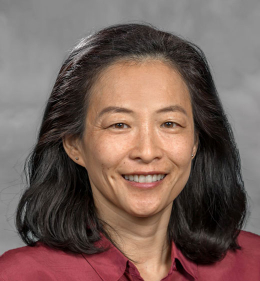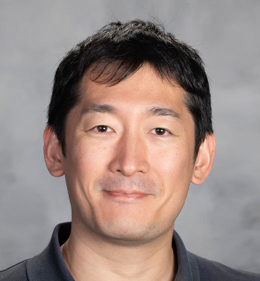About
Dr. Sawada is a scientist in the Johns Hopkins All Children's Department of Surgery and the Cancer & Blood Disorders Institute, and an Assistant Professor of Medicine in the Johns Hopkins University School of Medicine, Department of Orthopaedic Surgery.
Drawing on a strong PhD background in allergy and immunology and additional training in tumor microenvironments, Dr. Sawada leads a research program focused on understanding how lymphoid structures shape health and disease. The Sawada Lab investigates the roles of stromal cells—such as fibroblastic reticular cells, follicular dendritic cells, and endothelial cells—in directing the development and function of both secondary lymphoid organs and tertiary lymphoid structures. Leveraging these combined areas of expertise, the lab uncovers how specialized cells influence cancer progression and autoimmune disorders, aiming to identify new therapeutic opportunities.
Education
•D.V.M., Tokyo University of Agriculture and Technology, Tokyo, Japan, 1998
•Ph.D., Institute of Symbiotic Science and Technology, Tokyo University of Agriculture and Technology (United Graduate School of Veterinary Science, Gifu University), Tokyo, Japan, 2005
Department and Institute Affiliations
Institute for Fundamental Biomedical Research, Johns Hopkins All Children’s
Cancer & Blood Disorders Institute, Johns Hopkins All Children’s Hospital
Department of Orthopaedic Surgery, Johns Hopkins University School of Medicine
Honors and Awards
Dr. Sawada’s accomplishments have been recognized through multiple honors, including Research Fellowships of the Japan Society for the Promotion of Science for Young Scientists, the Inoue Research Award for Young Scientists (2007), and a Young Investigator Award at the 4th Mayo Clinic Angiogenesis Symposium (2010). He also received an Outstanding Poster Award at the 2013 Gordon Research Conference on Angiogenesis and a Young Investigator Scholarship at the 7th Mayo Clinic Angiogenesis and Tumor Microenvironment Symposium (2016).
Research Areas
In many diseases—from autoimmune disorders to cancer—the presence and organization of specialized lymphoid structures can be a critical factor determining outcomes. By directing immune cell behavior, these structures sometimes enhance protective responses, such as anti-tumor immunity, but can also drive harmful, chronic inflammation in autoimmune conditions. Understanding how they form, the stromal cells that build them, and the factors (including sex bias) that influence their function is therefore crucial. Our research seeks to bridge fundamental immunology and clinical application, uncovering strategies to harness or modulate lymphoid structures for improved patient care.
• Lymphoid Structure Development
We explore the formation, organization, and functional dynamics of lymphoid structures, which include both secondary lymphoid organs (such as lymph nodes) and tertiary lymphoid structures (TLSs). TLSs often arise in chronically inflamed tissues, including those found in cancer and autoimmune diseases. Our goal is to uncover the mechanisms that regulate lymphoid structure development and function, focusing on the roles of fibroblastic reticular cells, follicular dendritic cells, and endothelial cells.
• Cancer Research
We investigate how certain patients generate TLSs that strengthen anti-tumor immunity, as well as the role of cancer-associated fibroblasts (CAFs) in shaping the tumor microenvironment. By examining these stromal components—alongside fibroblastic reticular cells, follicular dendritic cells, endothelial cells, and immune cell populations—we aim to uncover mechanisms that can be leveraged to enhance anti-tumor responses and improve therapeutic outcomes.
• Sex Bias in Disease Susceptibility
Many autoimmune disorders, including rheumatoid arthritis, multiple sclerosis, and Sjögren’s syndrome, disproportionately affect women, whereas women are generally less susceptible to numerous cancers. We investigate these disparities by examining incomplete X-chromosome inactivation in the stromal cells that shape lymphoid structures. We also maintain a complementary interest in how TLSs—particularly those supported by specialized fibroblasts and other stromal cells—contribute to chronic inflammation in autoimmune conditions. By integrating these approaches, we aim to uncover factors that drive both autoimmunity and sex-specific disease outcomes.
Research Focuses:
- Tertiary Lymphoid Structures in Cancer and Autoimmune Diseases


Selected Publications
Sawada J, Hiraoka N, Qi R, Jiang L, Fournier-Goss AE, Yoshida M, Kawashima H, Komatsu M. Cancer Immunol Res. 2022 April 1;10(4):468-481. Molecular Signature of Tumor-Associated High Endothelial Venules That Can Predict Breast Cancer Survival. (This article was highlighted “in the spotlight” at Cancer Immunol Res (2022) 10 (4): 371.)
Sawada J, Perrot CY, Chen L, Fournier-Goss AE, Oyer J, Copik A, Komatsu M. High Endothelial Venules Accelerate Naive T Cell Recruitment by Tumor Necrosis Factor-Mediated R-Ras Upregulation. Am J Pathol. 2021 Feb;191(2):396-414.
Sawada J, Urakami T, Li F, Urakami A, Zhu W, Fukuda M, Li DY, Ruoslahti E, Komatsu M. Small GTPase R-Ras regulates integrity and functionality of tumor blood vessels. Cancer Cell. 2012;22(2):235-49.
Sawada J, Morita H, Tanaka A, Salminen S, He F, Matsuda H. Ingestion of heat-treated Lactobacillus rhamnosus G.G. prevents development of atopic dermatitis in N.C./Nga mice. Clin Exp Allergy. 2007;37(2):296-303.
Sawada J, Itakura A, Tanaka A, Furusaka T, Matsuda H. Nerve growth factor functions as a chemoattractant for mast cells through both mitogen-activated protein kinase and phosphatidylinositol 3-kinase signaling pathways. Blood. 2000;95(6):2052-